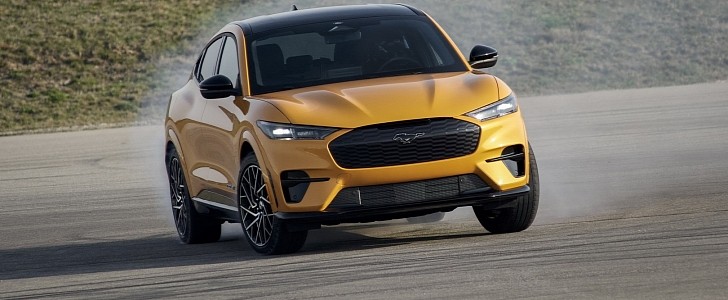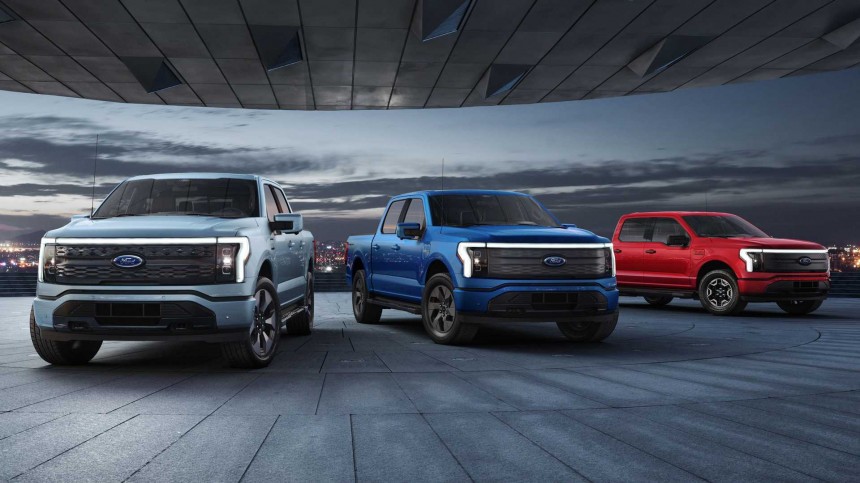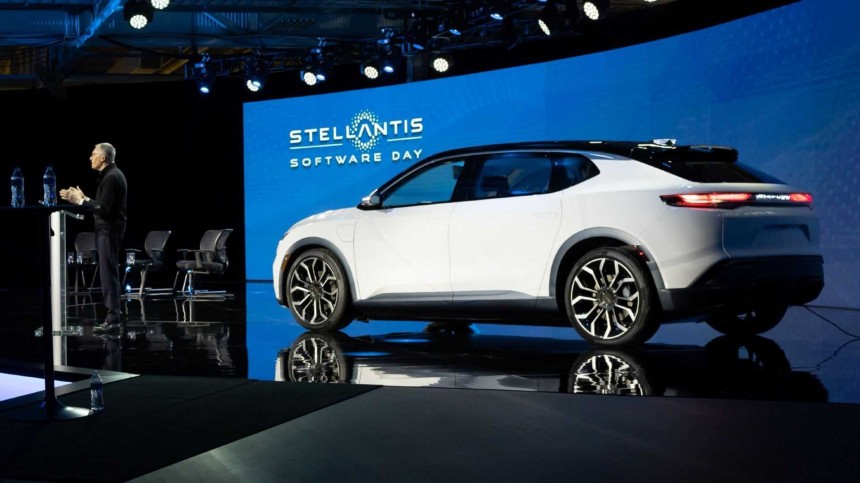At the beginning of the automobile, there were more electric cars than gasoline-powered ones. Eventually, the former lost the battle due to charging stations and the poor lead-acid batteries. But now, they are striking back thanks to new technologies.
I'm not going to debate if it's right or wrong or if I like them or not. But the trend obviously is going toward electric-powered vehicles. So whether we are talking about battery-electric or hydrogen-powered vehicles, the trend has started, and there's no going back.
Come December 2021, and we already know bits and pieces of most carmakers' strategies for the electric car development programs. Governments worldwide have already announced that they would eventually ban internal combustion vehicles, so there's no other way around. But, on the other hand, maybe they will reconsider and allow hydrogen-powered internal combustion powerplants, which are still polluting more than motors.
For the moment, the Blue Oval brand will stick to internal combustion engines for most of its cars, with or without electrification aids. But going green is certain. With some help from incentives, it will expand its range to the other brands it has. Moreover, at the COP 26 meeting in Glasgow, Ford said that by 2030 it only would sell electric cars in Europe and North America and will become fully electric by 2040.
Seeing a monster like this topping the 0-60 mph (0-97 kph) run in three seconds or less is absolutely mental. They do call it "supertruck" for a reason. With this powertrain developed, the rest of GM's SUVs and pickups will follow, so expect a full-size Escalade running on batteries soon.
For 2022 CES, Stellantis already announced that it will unveil the production-ready Airflow EV. The nameplate is, obviously, carried over from the century-old vehicle built by Chrysler. Thus, the American brand shows its first serious steps toward BEVs.
Maybe the Stellantis group doesn't move as fast as other carmakers, but it will never stop once it starts. Lancia and DS (Citroen's premium brand) will become fully electric in two years. We can expect Alfa Romeo to become a BEV-only manufacturer on the North-American continent by 2027. As for Chrysler, Dodge, and other U.S. brands, they will eventually follow the trend as well. It has already started to electrify some of its products, such as the Jeep Wrangler, and it will continue with the rest of the stable.
Thus, the American carmakers, together with their European and Chinese partners, are ditching those beloved V8s and pushrod-engines. We know that some are obsolete, but we can't help it; we still love them. It's a trade we must do if we want cleaner air for the future.
Last but not least, aircraft manufacturers are marching toward SAF-powered airplanes or, even better, electric-only planes. Sure, this is only the beginning of a road where some manufacturers already set foot a decade ago, while others just began their journey.
Come December 2021, and we already know bits and pieces of most carmakers' strategies for the electric car development programs. Governments worldwide have already announced that they would eventually ban internal combustion vehicles, so there's no other way around. But, on the other hand, maybe they will reconsider and allow hydrogen-powered internal combustion powerplants, which are still polluting more than motors.
Ford
The American brand turned to electricity with one model: the Mustang Mach-E. It is a fast crossover with sports car performance that has gathered traction worldwide. Despite all delays on the F-150 Lightning, it is clear where it's going.For the moment, the Blue Oval brand will stick to internal combustion engines for most of its cars, with or without electrification aids. But going green is certain. With some help from incentives, it will expand its range to the other brands it has. Moreover, at the COP 26 meeting in Glasgow, Ford said that by 2030 it only would sell electric cars in Europe and North America and will become fully electric by 2040.
General Motors
With so many brands under its roof, General Motors is like Volkswagen and can afford to test new technologies on lesser brands. After trials and errors with the EV-1, the Bolt, and Volt, it finally did its homework. It has already launched the GMC Hummer EV, which acts as a serious off-road vehicle, and don't try to challenge it on the road unless you're driving a serious supercar.Seeing a monster like this topping the 0-60 mph (0-97 kph) run in three seconds or less is absolutely mental. They do call it "supertruck" for a reason. With this powertrain developed, the rest of GM's SUVs and pickups will follow, so expect a full-size Escalade running on batteries soon.
Stellantis
The big carmaker that replaced Chrysler on the American scene, and PSA and Fiat in Europe, Stellantis already made some serious steps toward electric mobility. Peugeot had already had some experience with battery-electric vehicles in the '80s, but all that old technology only helped it to understand that... it'd be better to stick to internal combustion engines. Come 2019, and the carmaker launched the electric version of the Peugeot 208, which was also carried over to the Opel/Vauxhall Corsa-e, its other European siblings.For 2022 CES, Stellantis already announced that it will unveil the production-ready Airflow EV. The nameplate is, obviously, carried over from the century-old vehicle built by Chrysler. Thus, the American brand shows its first serious steps toward BEVs.
Maybe the Stellantis group doesn't move as fast as other carmakers, but it will never stop once it starts. Lancia and DS (Citroen's premium brand) will become fully electric in two years. We can expect Alfa Romeo to become a BEV-only manufacturer on the North-American continent by 2027. As for Chrysler, Dodge, and other U.S. brands, they will eventually follow the trend as well. It has already started to electrify some of its products, such as the Jeep Wrangler, and it will continue with the rest of the stable.
Last but not least, aircraft manufacturers are marching toward SAF-powered airplanes or, even better, electric-only planes. Sure, this is only the beginning of a road where some manufacturers already set foot a decade ago, while others just began their journey.









